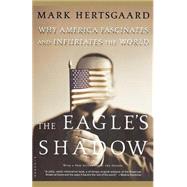
Note: Supplemental materials are not guaranteed with Rental or Used book purchases.
Purchase Benefits
What is included with this book?
| 1. The Parochial Superpower | 3 | (21) | |
| 2. Glamorous and Gluttonous | 24 | (21) | |
| 3. Taking Freedom for Granted | 45 | (21) | |
| 4. The Oblivious Empire | 66 | (22) | |
| 5. Our Palace Court Press | 88 | (23) | |
| 6. America's Gods, Holy and Unholy | 111 | (21) | |
| 7. The Land of Opportunity Turns Selfish | 132 | (21) | |
| 8. The Tragedy of American Democracy | 153 | (22) | |
| 9. Look Out, World, Here We Come | 175 | (21) | |
| 10. America the Beautiful | 196 | (15) | |
| Afterword: Why Americans See the War, and World, Differently | 211 | (18) | |
| Notes | 229 | (14) | |
| Acknowledgments | 243 | (2) | |
| Index | 245 |
The New copy of this book will include any supplemental materials advertised. Please check the title of the book to determine if it should include any access cards, study guides, lab manuals, CDs, etc.
The Used, Rental and eBook copies of this book are not guaranteed to include any supplemental materials. Typically, only the book itself is included. This is true even if the title states it includes any access cards, study guides, lab manuals, CDs, etc.